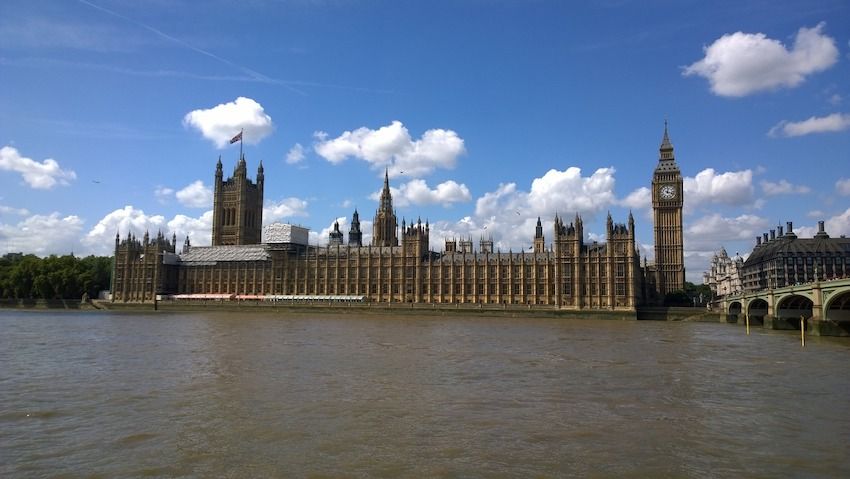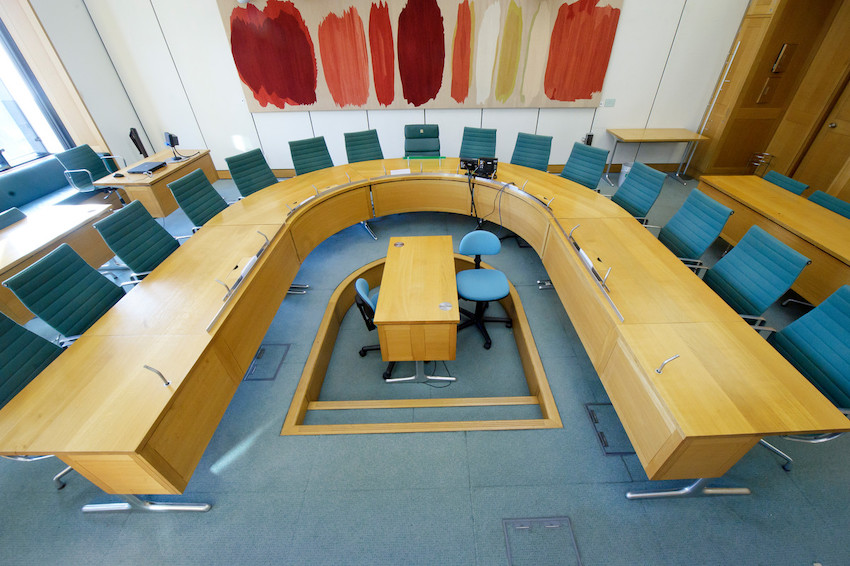


Serious fractures in Guernsey’s relationship with the UK have burst into the open as part of an ongoing inquiry.
Written evidence to the Justice Committee has shed light on disagreements and a deteriorating relationship, with practical problems including delays in accessing free trade agreements dating back years.
The committee’s inquiry into the UK's constitutional relationship with the Crown Dependencies - Guernsey, Jersey and the Isle of Man - began in September 2021, but was delayed by Covid.
Ahead of a hearing with UK Government ministers from the Ministery of Justice and Department for Business and Trade, written submissions have sparked a frank response from the island.
The UK has a constitutional responsibility to represent Guernsey’s interests, even where they differ from those of the UK.
But in written evidence, the MoJ said “fast-paced and complex negotiations can sometimes make it difficult to align the CD [Crown Dependencies] interests with the UK’s own trade interests".
“The UK Government is committed to working closely with the CDs to seek the best possible outcome for them during negotiations. This commitment does not however mean that the UK will always be in a position to represent the Islands’ views internationally where those views diverge from the UK’s own interests.”

The Policy and Resources hit back: “It is not considered appropriate to try to align Guernsey’s’ interests with the UK Government’s interests against its wishes, purely for the ease of negotiations either for the external party or to streamline the handling of negotiations.”
This can also lead to a misunderstanding of Guernsey’s position by external parties, it said.
“It would be expected that the threshold for the UK Government not being willing to represent the CDs’ interests would only arise in exceptional circumstances – which should not include time constraints.”
Guernsey often has the same or closely aligned policy objectives on international agreements as the UK, but may, because of its size and nature, have different ways of meeting them.
“Policy solutions may be significantly different to that of a larger jurisdiction and UK legislation or policy might not be suitable nor appropriate for Guernsey. These differences are fundamental to the island’s identity and it is essential that this is represented appropriately during international negotiations, including for trade matters.”
P&R argued that in some cases the DBT has not been consulting properly before taking action on their behalf internationally.
“As an example, on some recent occasions, DBT has instead informed the islands of what seems to be a fait accompli – either having already taken the action or being about to take the action but doing so without taking into account the comments/concerns raised by the CDs. Proper consultation should mean seeking the islands’ views, with reasonable time to respond, and then giving them the weight due to a self-governing jurisdiction on a matter of domestic competence.”
It said that there were “several” recent examples of negotiating texts, “non-papers” or draft legal text being shared with potential trade partners about the CDs, which the islands themselves have not had sight of in advance, and which Guernsey Ministers have not been consulted upon or consented to.
In some recent cases, less than 48 hours has been given to review new draft territorial extent text.
“Whilst it is understood that, at times, international negotiations will move at pace, there is a contrast in the tight timelines given to the CDs and then substantial delays in assessment by the UK of compliance material submitted to DBT by the CDs (in accordance with the UK’s own deadlines) for various UK FTAs [free trade agreements] as far back as 2019. This, in turn, leads to a lack of clarity about which elements, if any, DBT suggests would need action by Guernsey to close any perceived compliance gap.”
In July the UK agreed to join the Asia-Pacific trade bloc CPTPP, which is made up of Australia, Brunei Darussalam, Canada, Chile, Japan, Malaysia, Mexico, New Zealand, Peru, Singapore and Vietnam.
P&R said that “it is very important to activate the extension mechanism so that Guernsey can participate in the services and investment elements of the CPTPP as soon as practicably possible".
Disagreements also stretch to how Guernsey should meet international standards.
“It is not considered to be appropriate or necessary for UK Government Departments to attempt to direct or excessively influence Guernsey to fulfil international obligations using the same solutions as the UK,” P&R said.
“Most recently, DBT has strongly expressed the view that pathways towards meeting compliance and any new measures should align with UK legislation or acts in order to close any divergence in approach between the UK and the Crown Dependencies.
“However, solutions that meet the needs of the UK may not meet the needs of Guernsey, which can achieve the same compliance but in a different manner that is relevant, practical, and proportionate to its unique needs.”
The written evidence has also reopened an argument sparked by the 2020 Fisheries Act when at the last minute the UK inserted a clause that would give it power to extend fisheries controls to the island without its consent.
“That the UK Government was willing to insert a PEC in UK legislation without consent on a matter within Guernsey’s domestic competence, and upon which the island was already committed, is possibly symptomatic of a bigger problem. There seems to be a political shift in the UK demonstrating a willingness to interfere with longstanding constitutional principles for short term political gain.
“This has wider constitutional concerns which were not, in the view of Guernsey, considered or taken seriously by the UK Government at that time.”
At the time, DEFRA Ministers in the House of Commons and House of Lords suggested that the permissive extent clause was needed in order for the UK to be able to legislate without consent in future if Guernsey did not implement international obligations in a manner that the UK Government viewed as satisfactory.
P&R described it as a “paternalistic approach” which “went far beyond the limits of what might be argued as legitimate intervention and was unjustified”.
“That approach risks undermining Guernsey’s domestic autonomy which is essential in meeting international obligations on all topics. It is also a concern that it indicates a lack of trust and a poor understanding of the constitutional position by some Ministers and Departments.”
Comments
Comments on this story express the views of the commentator only, not Bailiwick Publishing. We are unable to guarantee the accuracy of any of those comments.